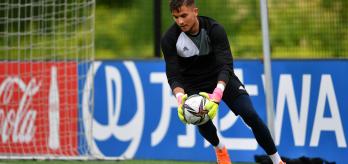Dr Mark Partington, Senior Lecturer in Sports Coaching at Edge Hill University, spent three seasons studying professional youth coaches at an English Premier League club. In this research brief, he explains that there is often a major disparity between how coaches think they coach and their actual behaviour, and considers how reflection, objective data and professional training can help them to improve and develop.
Key take-aways
-
There is often a big difference between how coaches believe they behave in training sessions and what they actually do.
-
Some coaches are not as aware of their coaching practices as they could be. Good use of technology and data can help to address this.
-
Developing coaches is a long-term process that requires a lot of self-awareness and a supportive environment.
Watch brief
Read summary
Part 1: Background, methodology and key behaviours
Dr Partington begins by setting out the aims and research methodology for the study. The main objective was to understand how coaches actually behaved on the training pitch and to compare their actual behaviour to their own perception of what they were doing. This aim was achieved by focusing on how coaches communicated with players in their training sessions, and why they took particular approaches. Partington illustrates some of these behaviours using videos from his own sessions with young players.
Part 2: How and why did coaches' behaviour change?
Here Dr Partington reveals the results of the study, showing how coaches' behaviour on the training pitch changed over the three seasons of the study. He then moves on to consider why these changes occurred, and identifies a number of potential reasons, including the professional training coaches undertook over the course of the study period and the way they used reflective conversations to deepen their understanding of their coaching practices. The key to improvement may lie in self-awareness, as you have to be aware of your behaviour before you can change it.
Paper citation and link
Partington, M., Cushion, C. Cope, E., Harvey, S., 2015, “The impact of video feedback on professional youth football coaches’ reflection and practice behaviour: a longitudinal investigation of behaviour change”, Reflective Practice, vol. 16, no. 5, pp. 700-716.
Read the full paper here.








.variant64x64.jpg)


.variant348x164.jpg)

